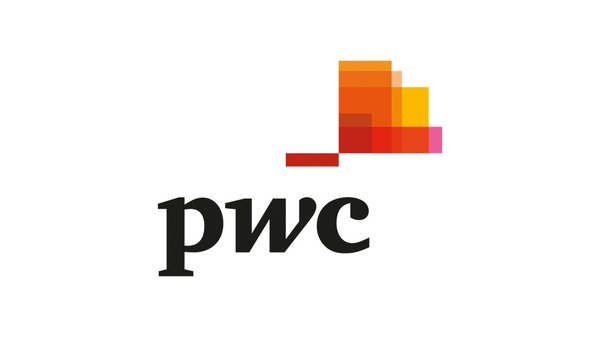-
Topics
backTopicsOur programs create spaces where open-minded leaders can gather for breakthrough conversations on pressing global issues – each aligned to one of the following pillars:
-
Events
backEventsExplore the variety of events Salzburg Global hosts within Austria and in the rest of the world. Learn more about our programs and what else happens at Schloss Leopoldskron.Upcoming EventsFeb 05 - Feb 07, 2026Peace & JusticeDisruption and Renewal: Charting the Future of the International Rule of Law, Democracy, and PluralismSalzburg Cutler Fellows Law ProgramApr 13 - Apr 18, 2026CultureCreating Futures: Rethinking Cultural Institutions, Infrastructure, and InvestmentCulture, Arts and Society
- Insights
-
Fellowship
backFellowshipSince 1947, more than 40,000 people from over 170 countries have participated in Salzburg Global's sessions. Collectively, these alumni are known as Salzburg Global Fellows.
-
About Us
backAbout UsSalzburg Global is an independent, non-profit organization committed to creating spaces that overcome barriers and open up a world of better possibilities.Our Approach
-
Support Us
backSupport UsYour generosity helps us gather open-minded leaders for breakthrough conversations, while creating space for dialogue that overcomes barriers and opens up a world of better possibilities.
- Donate
- Date
- Sep 30 - Oct 02, 2024
- Session no.
- S850-01
- Location
-
Schloss Leopoldskron, Salzburg, Austria
- Contact
-
Nicola DanielDirector, Finance and GovernanceAntonio RiolinoSenior Program ManagerBenjamin GlahnDeputy CEO and Managing Director, Programs
Share
Finance & Governance
How Can Corporate Governance Address the Accelerating Challenges of the Climate and Nature Crises?
Taking corporate action to reduce carbon emissions and address climate change has become a critical feature of the corporate governance landscape. For many years, the urgent need to reduce emissions, protect natural ecosystems, and safeguard biodiversity has been recognized across multiple international conventions, agreements, and regulatory requirements.
However, two recent developments are increasing the urgency for corporate boards – and corporate directors – to understand and act upon a range of disclosure requirements that will influence corporate decision-making on climate change and natural ecosystems for years to come.
First, in June 2023, new standards on sustainability-related financial disclosure were issued by the International Financial Reporting Standards Foundation (IFRS). Climate-related Disclosures Standard (IFRS S2) incorporates the guidance and recommendations of the TCFD and requires companies to disclose Scope 1, 2 and 3 GHG emissions. This is the first time emissions from a companies’ value chain have been included in the disclosure requirements of a global standard-setting institution. Even more far-reaching, in April 2024, the EU approved the Corporate Sustainability Due Diligence Directive which will require EU and non-EU companies meeting turnover thresholds to identify, prevent, mitigate and remediate human rights and environmental impacts throughout their supply chains.
Second, in January 2024 the World Economic Forum cautioned that “humanity has crossed the safe and just operating zone on 6 of 9 planetary boundaries, including climate change, land-system change, freshwater use, change in biosphere integrity, introduction of novel entities, and biogeochemical flows.” With half of the world’s GDP either highly or moderately dependent on nature and natural ecosystem services, there is now increasing recognition of the need to protect nature, natural ecosystems, and biodiversity inside corporate boardrooms.
As corporations and governments around the world wrestle with the difficulties of managing the transition to a lower carbon economy, and as the urgency to safeguard nature and natural ecosystems intensifies, how will corporate governance address these new standards and disclosure requirements in ways that enhance corporate action and effectiveness in dealing with the climate and nature crisis?
Date
Sep 30 - Oct 02, 2024
Session no.
S850-01
Location
Schloss Leopoldskron, Salzburg, Austria
Contact
Share
Policy Discord: Compounding the challenges of addressing the climate and nature crisis is a growing lack of clarity and cohesion concerning climate and nature legislation, regulation, and taxation, as well as a growing policy discord across Europe, China, the U.S., and other emerging and developing economies. Despite the emergence of new standards and disclosure regimes, this policy discord and lack of clarity can impede corporate action. How can corporate directors help set effective corporate strategy in this context, when corporate strategy often depends on clear and predictable government policy?
Standards and Disclosure Regimes: What role will emerging practices and standards, driven by disclosure regimes and other risk and regulatory measures like the new IFRS Standard (S2) on Climate-related Financial Disclosures and the work of the Taskforce on Nature-related Financial Disclosures (TNFD), play in harmonizing policy and enhancing corporate action?
Managing Governance Risk: As these emerging standards move disclosure requirements into corporate audit committees, what are the climate- and nature-related risks and governance issues that directors should understand in managing the corporate approach to climate change and ecosystem degradation? What is the right lens for these issues – compliance, business opportunity, balancing of divergent stakeholder interests, existential threat? All of the above? What more should companies be doing now in the absence of, or anticipation of, more (or less) regulation?
Incentives and Tools: There is no global price for carbon to require emitters to pay for the increasing harm that carbon emissions impose on society. Does carbon need to be on the balance sheet to justify fundamental changes to corporate investment and resource allocation? Or, are there other price-based and non-price-based policy approaches that should be considered? Many corporations are adopting voluntary emission reduction and other targets for their corporate activities and investing in forestry and other projects to offset (or inset) emissions that cannot be reduced. How can directors ensure effective oversight of measures like transition pathways, internal carbon pricing, corporate net zero targets, offsets, and insets?
Equity: There are significant governance and equity issues to be considered, particularly with respect to the development of markets for carbon and nature. There is concern that businesses may rely on offsets without making the investment needed to address their direct and indirect impacts. There is also concern about the integrity of these investments and their potential to violate the rights of Indigenous Peoples and and historically disenfranchised communities by commodifying nature. In many industries and locations, workers in corporate supply chains are exposed to dramatically greater health risks from climate change. Should stakeholders and rights-holders like local and Indigenous communities, those representing future generations, or workers have a governance role in these markets or on corporate boards or committees of companies that consider using these mechanisms? What role will historical emissions play in future policy approaches to equity and climate justice?
Governance Structures: What new governance structures beyond traditional corporate structures should be considered to accelerate corporate action and to improve the flow of capital to solve these issues? What is the role of new actors, structures and mechanisms for collective action like B corps, public/private/non-profit joint ventures and other legal mechanisms?
Participant profile
The Forum was intended to benefit directors and principals of corporations operating in various jurisdictions who wanted an off-the-record opportunity to explore the greatest climate-related and sustainability challenges facing them as directors in the coming decade. We prioritized directors currently serving on corporate boards. No prior knowledge of ESG issues was required to participate.
While the majority of participants were board directors, academics and subject-matter specialists were also invited to bring their expertise to the discussion. The aim was to help directors and corporate policy makers return to their boardrooms with new ideas, new partnerships and new insights, so they could become thought leaders and change-makers for the coming decades.




